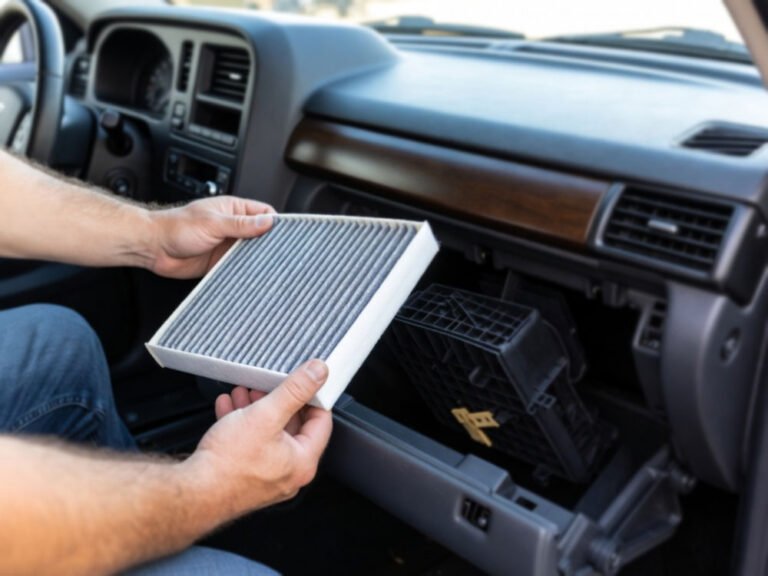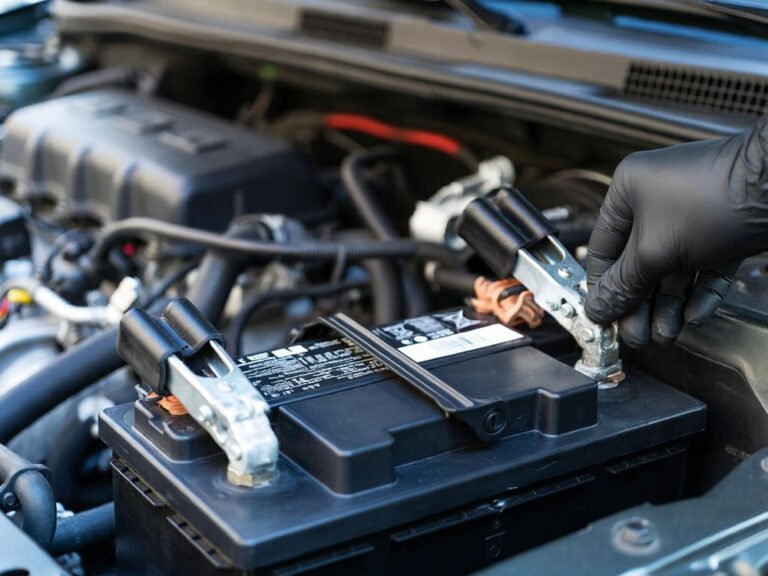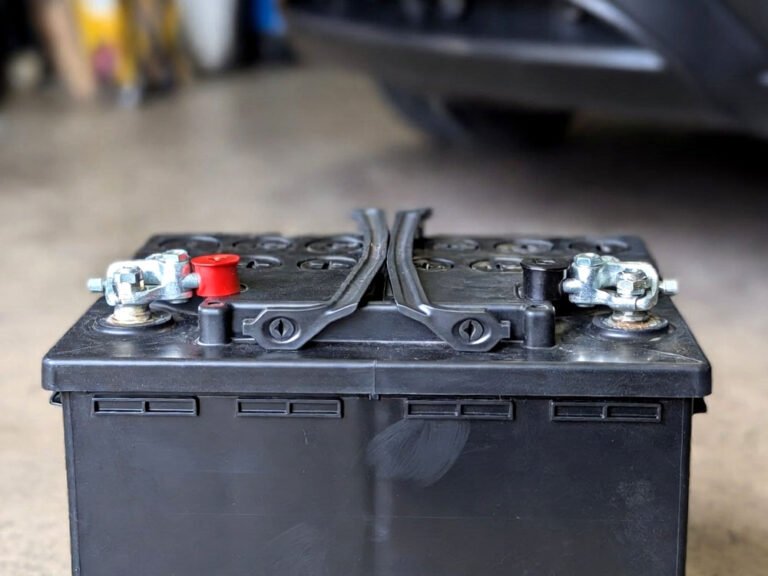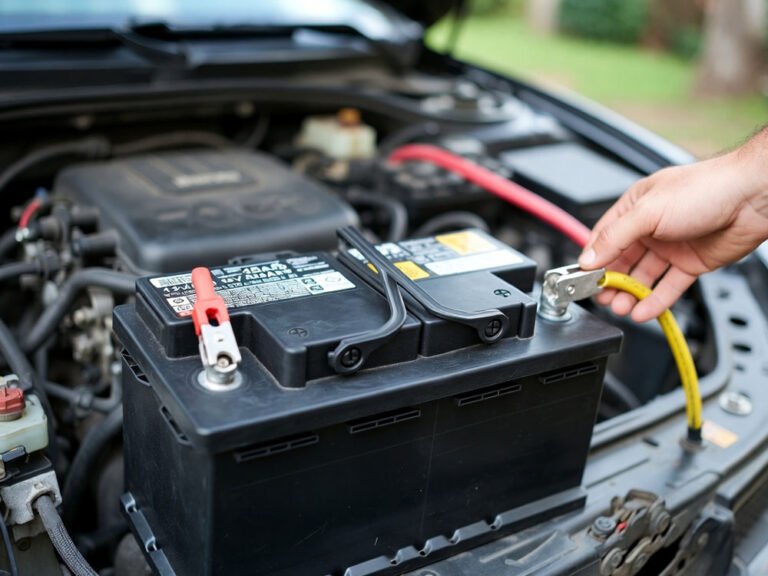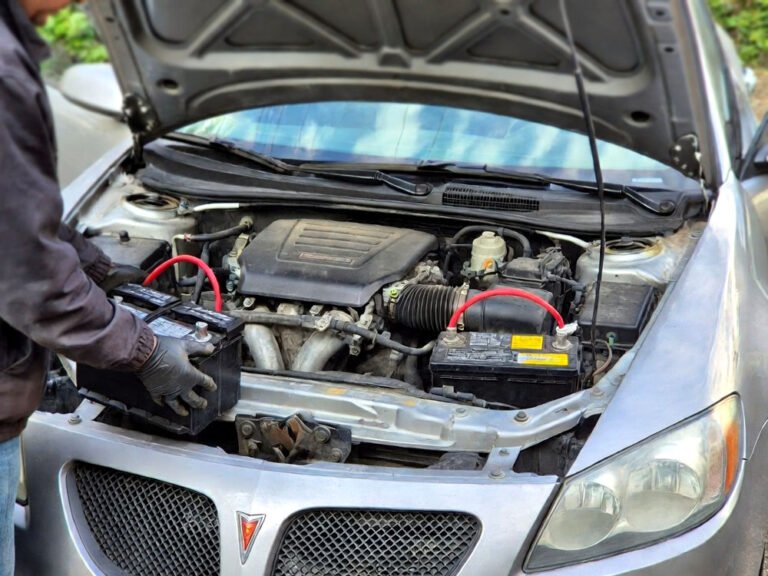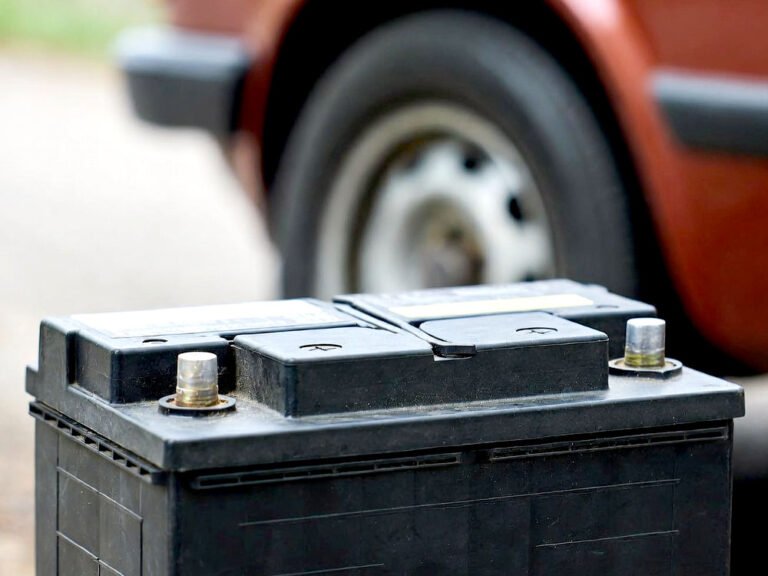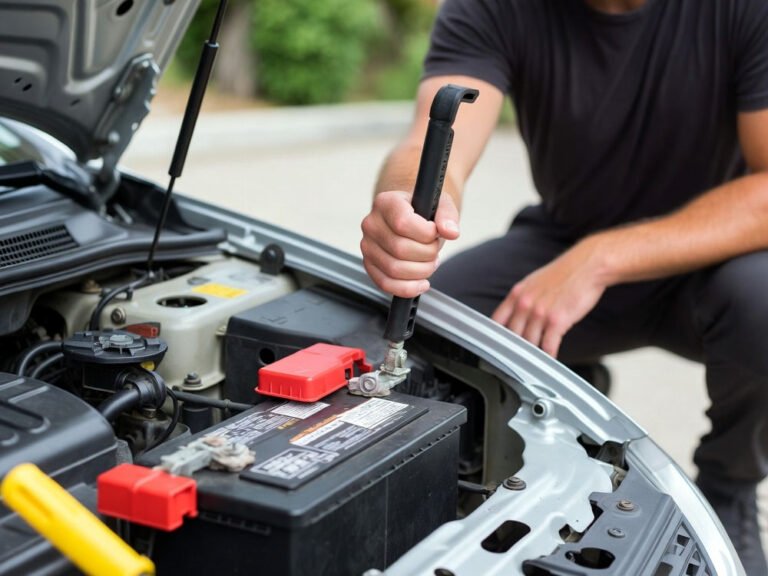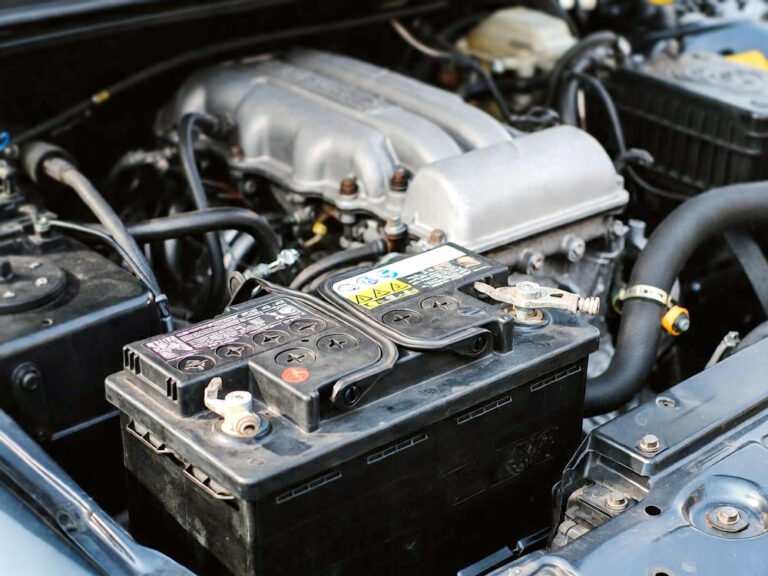You might not think about your diesel fuel filter often, but when it goes bad, your engine starts to show signs fast. You could feel your truck or car acting strange — maybe it’s losing power or hesitating to start. I’ve been there, and it’s frustrating! The good news is, in this article, you’ll learn the key signs of a bad fuel filter in a diesel engine and what to do about it.
How a Bad Fuel Filter Affects Your Diesel Engine’s Performance
Your diesel engine relies on clean fuel to run well, and the fuel filter’s job is to keep dirt and impurities out. When the fuel filter gets clogged or goes bad, it can’t do this job properly. The first thing you might notice is the engine not running smoothly. It could feel like your vehicle is struggling when you try to accelerate or go uphill. The engine might cough or hesitate because it isn’t getting enough fuel.
A bad fuel filter makes it harder for fuel to flow to the engine. This causes the engine to work harder and can lead to reduced power. Sometimes, the engine might even stall while you’re driving because it’s starved for fuel. If the filter is too clogged, fuel pressure drops, which means the fuel pump has to work extra hard, and this can damage the pump over time.
Sometimes, you might also notice black smoke coming out of the exhaust. This happens because the engine isn’t burning fuel properly when the filter is clogged. Over time, the dirty fuel or blocked filter can even cause your diesel injectors to get dirty or clogged, leading to more problems and expensive repairs.
Many people think that bad fuel or the engine itself is the problem, but often, a simple clogged fuel filter is the culprit. Replacing the fuel filter on time is a simple fix that helps keep your diesel engine running strong and saves you from bigger, costlier problems.
- A clogged fuel filter reduces fuel flow to the engine.
- The engine loses power and may hesitate or stall.
- Fuel pump works harder and can get damaged.
- Black smoke from the exhaust may appear.
- Diesel injectors can get clogged from dirty fuel.
- Replacing the filter fixes many performance issues.
Recognizing Starting Problems Linked to a Bad Diesel Fuel Filter
Starting your diesel engine should be quick and easy. But if your fuel filter is bad, it can cause problems getting your engine to start at all. You may notice that it takes longer to start the engine or you have to try several times before it finally turns over. Sometimes, the engine might crank but fail to start because the fuel isn’t reaching the engine properly.
This happens because the clogged fuel filter blocks the fuel flow, so the engine doesn’t get enough fuel to ignite and run. When the filter is very dirty, it acts like a wall that stops fuel from passing through easily. You might also hear strange noises like sputtering or coughing during starting.
Another sign is that your glow plugs work harder or longer than usual. Glow plugs help start diesel engines in cold weather, but if fuel flow is poor, they have to keep running to try to get the engine going. This wears them out faster and can cause more starting trouble.
If you have to wait longer or keep trying to start your diesel engine, the fuel filter could be the cause. Don’t ignore these signs because delayed or hard starting can lead to more engine damage and leave you stuck when you need your vehicle most.
- Engine takes longer to start or needs several tries.
- Engine cranks but fails to start sometimes.
- Sputtering or coughing noises during start.
- Glow plugs run longer or wear out faster.
- Clogged filter blocks fuel flow needed for ignition.
- Fixing or replacing the fuel filter helps start the engine easily.
How Bad Fuel Filters Cause Diesel Engine Rough Idling and Stalling
If your diesel engine is shaking or feels rough when it’s just idling (running but not moving), a bad fuel filter might be to blame. A clogged or dirty filter restricts the fuel flow, making the engine starve for fuel even when it doesn’t need a lot. This causes the engine to run unevenly or rough.
You might feel the engine shaking or hear it sputtering at idle. Sometimes, the engine may even stall and shut off on its own while you are stopped at a light or parked. This is dangerous because it can happen suddenly and without warning.
When the fuel filter is bad, the fuel pressure drops and the engine struggles to keep running smoothly. This can also cause the check engine light to come on, which is your vehicle’s way of telling you something is wrong. The rough idling often gets worse over time as the filter clogs more and more.
To fix rough idling and stalling, the fuel filter usually needs to be cleaned or replaced. Ignoring the problem can lead to more serious engine damage and leave you stranded. Getting the fuel filter checked at the first sign of trouble is the best way to keep your diesel running steady.
- Engine shakes or runs unevenly at idle.
- Engine may stall when stopped or parked.
- Fuel pressure drops because of clogged filter.
- Check engine light might turn on.
- Problem worsens as filter gets dirtier.
- Cleaning or replacing filter stops rough idle and stalling.
Noticeable Loss of Power and Poor Acceleration from Bad Fuel Filters
One of the clearest signs of a bad diesel fuel filter is when your vehicle feels weak and slow. You push the gas pedal, but your truck or car does not respond like it used to. This loss of power and poor acceleration happens because the engine isn’t getting enough fuel to burn properly.
When the fuel filter clogs, it chokes the fuel flow. The engine tries hard to keep going, but it just can’t get the fuel it needs quickly enough, especially when you want to go faster or drive uphill. This makes driving frustrating and unsafe, especially on busy roads or highways.
This loss of power often starts small and gets worse as the filter clogs more. You might notice it happens mostly when the engine is working hard, like during towing, climbing hills, or quick acceleration. The engine might also hesitate or jerk when you try to speed up, which can be dangerous.
Fixing the problem is simple — replace the bad fuel filter. Doing this early can save you money on bigger engine problems and keep your diesel engine running strong and smooth.
- Vehicle loses power and feels weak.
- Poor acceleration and slow response to gas pedal.
- Engine struggles more during hard work or hills.
- Hesitation or jerking when speeding up.
- Problem worsens as filter clogs more.
- Replacing the filter restores power and smooth driving.
How a Bad Fuel Filter Can Damage Diesel Engine Parts Over Time
A fuel filter might seem small and simple, but a bad one can cause serious damage to your diesel engine if ignored. When a filter is clogged or damaged, dirt and impurities get through and into the fuel system. These tiny particles can harm sensitive engine parts like fuel injectors and the fuel pump.
Dirty fuel injectors don’t spray fuel evenly or cleanly, which causes the engine to run rough, lose power, or even produce harmful smoke. Replacing or cleaning injectors is expensive, but preventing this damage by changing the fuel filter is easy and cheap.
The fuel pump also has to work extra hard to push fuel through a clogged filter. This extra strain can cause the pump to overheat, wear out faster, or fail completely. A bad fuel pump means your vehicle won’t run at all and fixing it is costly.
Besides mechanical damage, bad fuel filters can increase engine wear by causing poor combustion. When fuel burns poorly, it creates deposits inside the engine and increases pollution. Regular fuel filter maintenance helps keep your diesel engine clean and healthy.
- Dirty fuel damages injectors and fuel pump.
- Fuel injectors spray fuel unevenly causing rough running.
- Fuel pump wears out or fails from extra work.
- Poor fuel combustion causes engine deposits.
- Repairing damaged parts is expensive.
- Replacing fuel filter prevents costly engine damage.
Simple Ways to Check and Replace Your Diesel Fuel Filter
Checking and replacing your diesel fuel filter is easier than many people think. Most diesel vehicles have the fuel filter placed where it’s easy to access — usually near the engine or under the vehicle. Before you start, make sure the engine is off and cool.
First, locate the fuel filter and inspect it. If it looks dirty or clogged, or if your vehicle has been showing any symptoms mentioned above, it’s time to replace it. You might notice a warning light on your dashboard, or your vehicle’s manual might say how often to change the filter.
Replacing the fuel filter involves removing the old filter carefully to avoid fuel spills, and then installing the new one in the right position. Some filters have special clips or screws to hold them in place. It’s important to follow your vehicle’s manual instructions or get help from a mechanic if you’re not sure.
Regular replacement — usually every 15,000 to 25,000 miles, or as the manual suggests — keeps your diesel running smoothly and avoids damage. Checking the fuel filter is a small task that saves you money and keeps your vehicle reliable.
- Locate and inspect the fuel filter.
- Look for dirt, clogging, or warning signs.
- Replace old filter with a new one carefully.
- Follow vehicle manual for replacement schedule.
- Proper installation avoids fuel spills or damage.
- Regular changes prevent engine problems and save money.
Quick Guide
| Symptom | What Happens | Why It Happens | What To Do |
|---|---|---|---|
| Engine loses power | Weak acceleration, slow response | Fuel flow blocked by filter | Replace fuel filter |
| Hard starting | Takes longer to start | Fuel not reaching engine | Check and change fuel filter |
| Rough idling | Engine shakes or stalls | Fuel pressure drop | Clean or replace fuel filter |
| Black exhaust smoke | Poor fuel burn | Clogged filter | Replace filter, check injectors |
| Fuel pump strain | Pump works hard, may fail | Blocked fuel flow | Replace filter promptly |
| Engine damage risk | Worn injectors and pump | Dirt passing through filter | Regular fuel filter replacement |
Final Thoughts
A bad fuel filter in your diesel engine can cause many problems, from hard starting to serious engine damage. Knowing these signs early and replacing the filter regularly keeps your vehicle running strong and safe. It’s a small part but very important. Taking care of your fuel filter means fewer headaches, better engine health, and more time on the road without trouble. Don’t wait for big problems — check your fuel filter today.
Frequently Asked Questions (FAQs)
Is it normal for a diesel engine to lose power suddenly?
No, sudden power loss is not normal. It often means fuel is not reaching the engine properly, which can be caused by a clogged fuel filter. When the filter blocks fuel flow, the engine starves and loses power. If this happens, check the fuel filter first before looking at other parts. Replacing the filter usually fixes the problem and makes your engine run smoothly again.
Can a bad fuel filter cause my diesel engine not to start?
Yes, a clogged fuel filter can stop your diesel engine from starting. Without enough fuel, the engine can crank but won’t ignite. Fuel must flow freely to the engine for it to start, and a dirty filter blocks this flow. If your engine struggles to start, check the fuel filter as one of the first things. Changing a bad filter often solves this issue quickly.
Do I need to replace the diesel fuel filter regularly?
Yes, regular replacement is important. Over time, the fuel filter collects dirt and particles that can clog it. Most manufacturers suggest changing the filter every 15,000 to 25,000 miles or at set service intervals. Replacing it on time prevents many engine problems and keeps your diesel running well. Check your vehicle’s manual for exact schedules.
Is it safe to drive with a bad fuel filter?
It’s not safe to drive with a bad fuel filter. The engine might stall suddenly, lose power, or cause damage to important parts like the fuel pump and injectors. This can leave you stranded or cause expensive repairs. If you notice symptoms like rough running or poor acceleration, get the fuel filter checked and replaced right away.
Can a bad fuel filter cause black smoke from the exhaust?
Yes, a clogged fuel filter can cause black smoke. When the engine doesn’t get enough clean fuel, it burns the fuel poorly, producing black smoke. This is a sign that your diesel engine isn’t working efficiently and needs attention. Replacing the fuel filter and cleaning injectors usually clears up the smoke problem.
Do I need special tools to replace a diesel fuel filter?
Not always. Some fuel filters are designed to be replaced by hand or with simple tools like a wrench. However, some vehicles may need special tools or professional help. It’s best to check your vehicle manual or ask a mechanic if you’re unsure. Safety is important when working with fuel systems, so don’t rush.
Is it possible to clean a diesel fuel filter instead of replacing it?
While some filters can be cleaned, most modern diesel fuel filters are designed to be replaced. Cleaning might not remove all dirt or damage inside the filter. Replacing the filter ensures your fuel system stays clean and your engine runs well. If you’re unsure, consult a mechanic or your vehicle manual.
Can a bad fuel filter affect fuel economy?
Yes, a clogged fuel filter makes the engine work harder, which can reduce fuel efficiency. The engine burns fuel less efficiently when the filter is dirty, causing you to use more fuel for the same distance. Changing the fuel filter helps your diesel run smoothly and saves money on gas in the long run.


